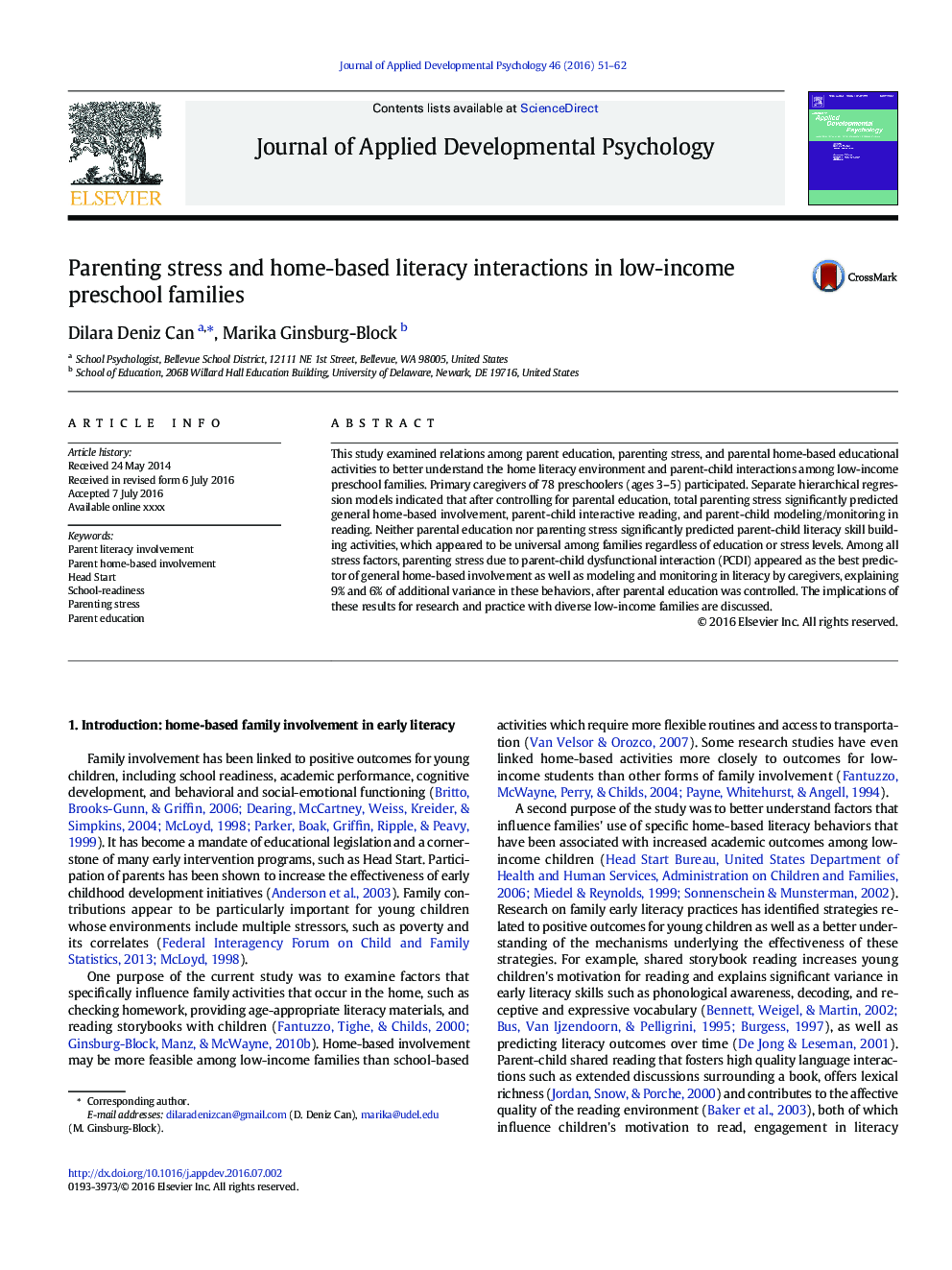| کد مقاله | کد نشریه | سال انتشار | مقاله انگلیسی | نسخه تمام متن |
|---|---|---|---|---|
| 359586 | 620256 | 2016 | 12 صفحه PDF | دانلود رایگان |
• Relationships between stress, education, and home-based involvement were examined.
• Separate hierarchical regression models were conducted to address the hypotheses.
• Stress and education differentially related to parent literacy involvement.
• Types of parenting stress mattered for general and literacy-specific involvement.
• Theories that explain stress and parent early literacy practices were discussed.
This study examined relations among parent education, parenting stress, and parental home-based educational activities to better understand the home literacy environment and parent-child interactions among low-income preschool families. Primary caregivers of 78 preschoolers (ages 3–5) participated. Separate hierarchical regression models indicated that after controlling for parental education, total parenting stress significantly predicted general home-based involvement, parent-child interactive reading, and parent-child modeling/monitoring in reading. Neither parental education nor parenting stress significantly predicted parent-child literacy skill building activities, which appeared to be universal among families regardless of education or stress levels. Among all stress factors, parenting stress due to parent-child dysfunctional interaction (PCDI) appeared as the best predictor of general home-based involvement as well as modeling and monitoring in literacy by caregivers, explaining 9% and 6% of additional variance in these behaviors, after parental education was controlled. The implications of these results for research and practice with diverse low-income families are discussed.
Journal: Journal of Applied Developmental Psychology - Volume 46, September–October 2016, Pages 51–62
